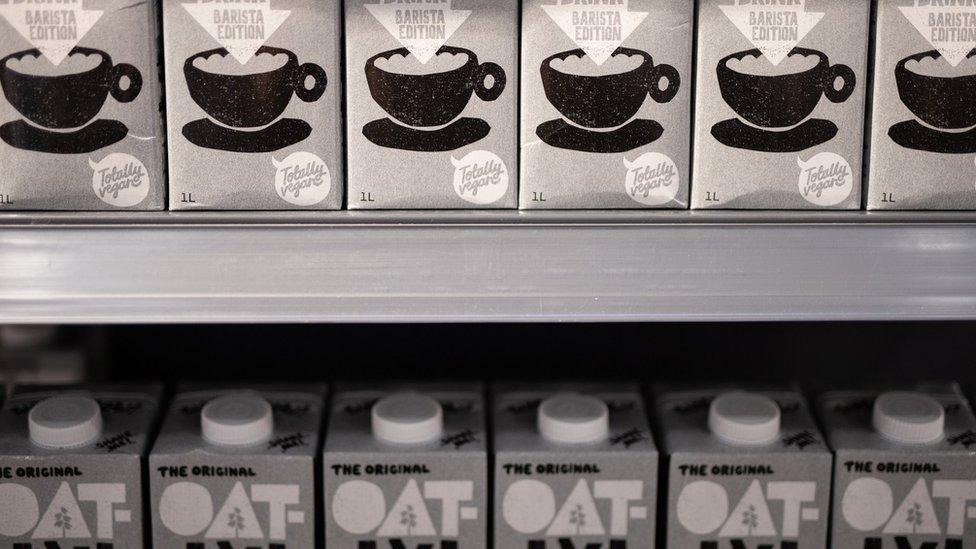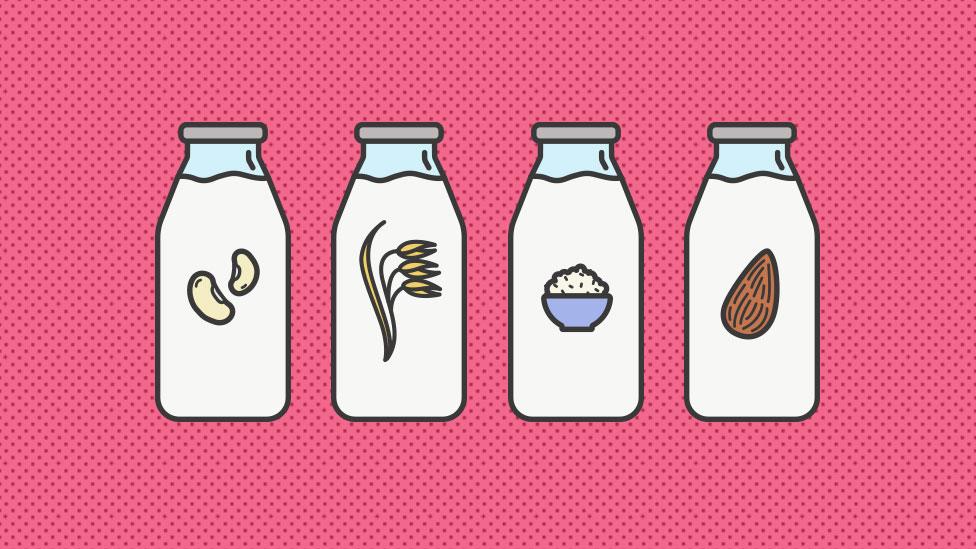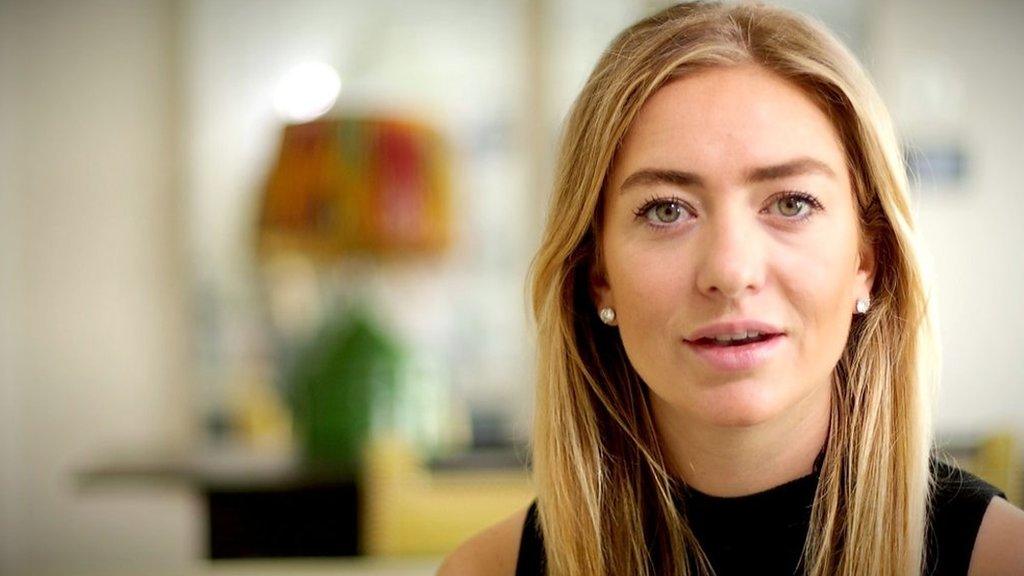Oatly looks to raise money in stock market float
- Published

Oatly, the plant-based milk company started in Sweden, is planning a stock exchange listing in the United States.
The move comes as the firm has been pushing to expand, amid the booming popularity of alternative milks.
Last year, it raised $200m (£160m), drawing investment from celebrities including Jay-Z, Oprah Winfrey and Natalie Portman.
The firm, which is sold in more than 20 countries, did not say how much money it hoped to raise in the listing.
But over the last 12 months, investors have shown strong appetite for shares of companies making their publicly-traded debuts. Market valuations for firms such as Airbnb, dating app Bumble and food delivery platform Doordash have soared.
Oatly, an early oat milk pioneer, is said to be seeking a value of as much as $10bn, compared to the $2bn value suggested by July's investment round.
Founded in the 1990s, previous investors include the state-owned China Resources and Verlinvest, a Belgium-based investment firm.
"If you're going to be ethical, you need to back it up"
When it launched in the US in 2016, the product was so popular it suffered shortages. It now boasts partnerships with retail giants such as Starbucks and has expanded its products from milk to ice cream and yogurt and is eyeing growth in China.
Researchers have predicted, external that the market for dairy alternatives could almost double over the next five years, as increased dairy allergies and concerns about dairy's environmental impact push shoppers to look for plant-based options.
In the US, almond milk is the top seller, but oat passed soy last year, external to claim the second most popular spot.
Oatly, which reported more than $200m in sales in 2019, has cast itself as a champion of plant-based milks, which it says are better for the planet.
But the firm has been challenged by the traditional dairy industry and faces competition as companies such as PepsiCo's Quaker Oats and dairy giant HP Hood launch their own brands. New milk alternatives, made from products like peas, have also gained in popularity among consumers.
- Published22 February 2019

- Published14 July 2020

- Published11 February 2021
